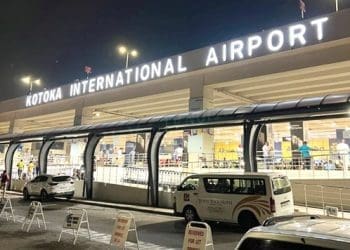As members of the Ghana Registered Nurses and Midwives Association (GRNMA) begin a series of actions that could culminate in a nationwide withdrawal of services, the Ministry of Health has moved swiftly to reassure the public and put in place emergency measures aimed at minimizing disruptions to health care delivery.
In a statement issued and signed by Mr. Tony Goodman, spokesperson for the Ministry, the government detailed steps taken since the GRNMA announced its industrial action roadmap on May 28.
The Ministry emphasised its ongoing commitment to resolving the matter and outlined directives to health institutions across the country intended to preserve access to essential health services during the period of the strike.
On May 30, 2025, the Ministry convened a meeting with all major stakeholders in the nursing and midwifery sector.
These included the GRNMA as well as other professional bodies such as the Union of Professional Nurses and Midwives (UPNMG), the Ghana Registered Midwives Association (GRMA), the National Association of Registered Midwives–Ghana (NARM-G), the Psychiatric Nurses Association–Ghana (PAPNG), and the Nurses and Midwives Educators Society.
The meeting provided a platform for each group to present its position, with all associations calling strongly for the implementation of the collective agreement signed in 2024.
Minister for Health, Kwabena Mintah Akandoh, reaffirmed his commitment to the welfare of nurses and midwives and proposed the creation of a three-member team comprising representatives from the Ministry of Health, the Ministry of Finance, and the nursing unions to bring finality to the issue.
All parties agreed to this proposal, and formal letters have since been dispatched to initiate the process. However, despite this step forward, the GRNMA has maintained its intention to proceed with the industrial action, while the other associations agreed to continue providing services to the public.
To mitigate the potential fallout from the strike, the Ministry has issued a series of directives to health sector actors across the country.
Security agencies have been tasked to ensure the safety of nurses and midwives who have pledged to continue working during the strike period.
Hospital managers, including Directors of Nursing Services and their deputies, are expected to remain physically present at their posts throughout the duration of the action to coordinate care and maintain order.
Heads of health facility units have been directed to guarantee that key services such as maternity and emergency care remain functional.
The National Ambulance Service has also been placed on high alert in every district to respond swiftly to emergencies, and hospitals are required to set up internal coordination teams to work closely with ambulance units to manage critical cases and ensure patient transfer where necessary.
In addition, the Director-General of the Ghana Health Service, as well as the Chief Executive Officers and Medical Directors of teaching hospitals, have been ordered to submit daily reports on service availability and patient care to the Acting Chief Director of the Ministry.
The Ministry is also working with quasi-government health facilities to help absorb increased patient numbers during the strike.
The Ministry further advised that rotational nurses and nursing students currently undergoing their mandatory clinicals refrain from participating in any form of industrial action, noting their current status as trainees under supervision.
It assured the public that the situation would be closely monitored and that logistical support would be provided to facilities in need during the industrial action.
The Ministry of Health expressed its appreciation to all nursing and midwifery professionals who have chosen not to join the strike and issued a heartfelt appeal to the leadership of the GRNMA to reconsider its decision.
The government maintains that dialogue and mutual cooperation remain the best path forward and expressed optimism that the planned roadmap of action could be reconsidered in favour of ongoing negotiations.
As the first stage of the GRNMA’s roadmap begins with the wearing of red armbands from June 2 to June 3 and the subsequent withdrawal of Out-Patient Department services from June 4, the health sector now enters a sensitive period.
The Ministry’s efforts to cushion the impact will be put to the test as it tries to maintain health service continuity in the face of a potentially crippling nationwide strike.














